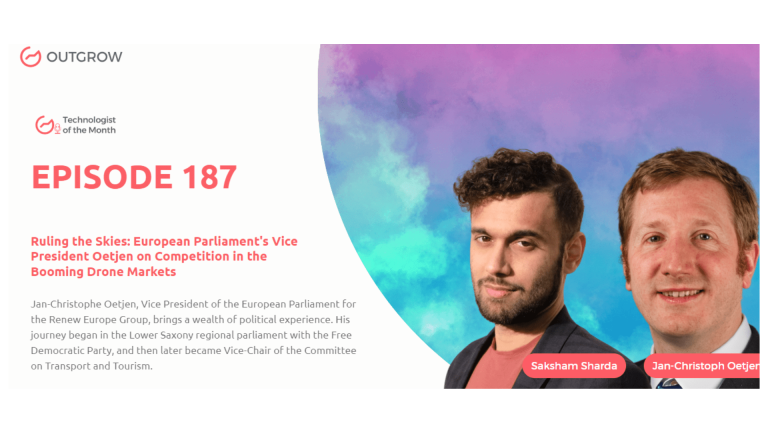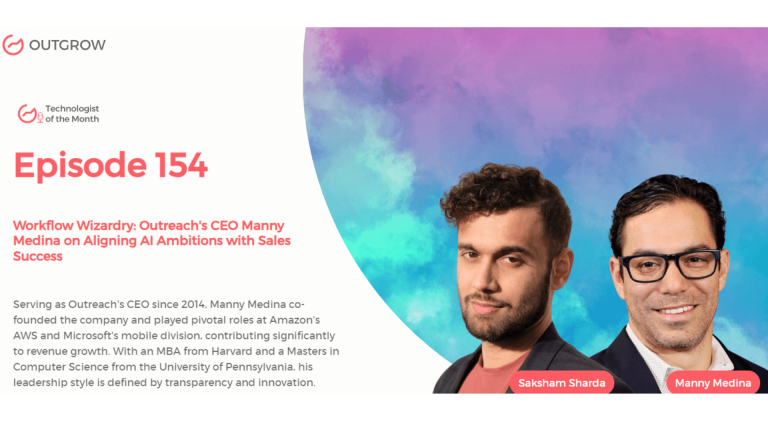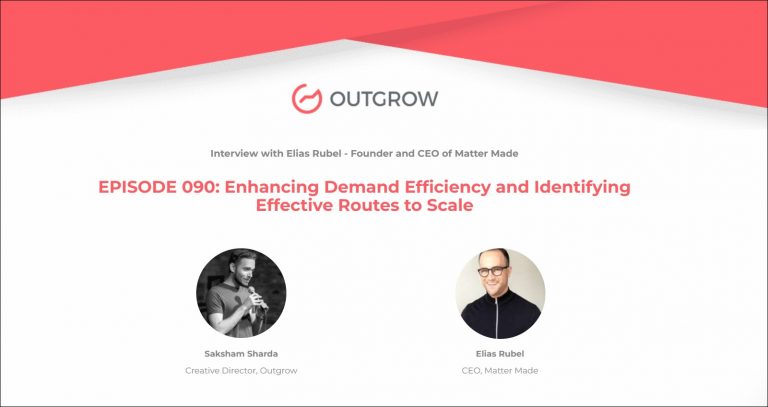EPISODE 161: Marketer of the Month Podcast with Tom Morton and Tiffany Rolfe
Table of Contents
Hey there! Welcome to the Marketer Of The Month blog!
We recently interviewed Tom Morton and Tiffany Rolfe for our monthly podcast – ‘Marketer of the Month’! We had some amazing insightful conversations with Tom and here’s what we discussed about-
1. Describing the ‘Fever Economy’: The discomfort of a fluctuating economy, impacting various sectors simultaneously.
2. Anticipating Recession Duration: Avoiding predictions but emphasizing brands’ role in aiding consumers with fewer resources.
3. Strategizing Amid Turbulence: Boosting customer confidence through UX design amidst economic uncertainty.
4. Navigating Economic Challenges: Advising brands on assisting customers to achieve more with fewer resources.
5. Aligning Brand Strategy with User Experience: The importance of holistic consumer connections for long-term relationships.
6. Redefining Brand Purpose: Encouraging brands to redefine their long-term purpose and business strategy beyond current products.
7. Elon Musk’s Twitter Influence: Concerns about changes impacting Twitter’s safety and productivity due to Musk’s influence.
About our host:
Dr. Saksham Sharda is the Chief Information Officer at Outgrow.co. He specializes in data collection, analysis, filtering, and transfer by means of widgets and applets. Interactive, cultural, and trending widgets designed by him have been featured on TrendHunter, Alibaba, ProductHunt, New York Marketing Association, FactoryBerlin, Digimarcon Silicon Valley, and at The European Affiliate Summit.
About our guest:
Tom Morton, R/GA’s Global Chief Strategy Officer, crafts winning brand strategies and champions innovation across disciplines. Tiffany Rolfe, R/GA’s Global Chair/Chief Creative Officer, drives innovative brand strategies for industry leaders like Nike and Verizon, blending storytelling and technology for business growth.
Turbulent Tides: R/GA’s Morton and Rolfe Chart a Course of Confidence through UX Currents
The Intro!
Saksham Sharda: Hi, everyone. Welcome to another episode of Outgrow’s Marketer of the Month. I’m your host, Dr. Saksham Sharda, and I’m the creative director at Outgrow. co. And for this month we are going to interview Tom Morton, who is the Global Chief Strategy Officer at R/GA, and Tiffany Rolfe, who Is R/GA’s Global Chair/Chief Creative Officer.
Tom Morton and Tiffany Rolfe: Great to be here. Thank you.
Don’t have time to read? No problem, just watch the Podcast!
Or you can just listen to it on Spotify!
The Rapid Fire Round!
Saksham Sharda: Describe what your organization does in one sentence.
Tom Morton: We modernize businesses and brands with design and technology.
Saksham Sharda: How long does it take you to get ready in the mornings?
Tiffany Rolfe: As long as I have
Saksham Sharda: The most valuable skills you have learned in life?
Tom Morton: Building narratives, telling stories out of lots of different things.
Saksham Sharda: How many speakers can you name at this conference?
Tiffany Rolfe: Six.
Saksham Sharda: Name them
Tiffany Rolfe: Shit, I probably was lying. Tiff Rolfe and Tom Morton, James Vincent, Kate Krugman, Rosemary, Ryan.
Saksham Sharda: In one sentence, describe one problem that your organization is facing.
Tom Morton: How to maintain an amazing culture in a remote world.
Saksham Sharda: Okay, how do you relax?
Tiffany Rolfe: Take a deep breath.
Saksham Sharda: A habit of yours that you hate?
Tom Morton: I’m not very good at working the room. So why I’m at Web Summit is kind of questionable.
Saksham Sharda: Work from home or office?
Tiffany Rolfe: Both.
Saksham Sharda: The most embarrassing moment of your life?
Tom Morton: I did a lot of TV shows when I was younger. So there’s a lot of footage of me with very different hair out there.
Tiffany Rolfe: I did a lot of random TV shows too, who knew that about us?
Saksham Sharda: How many hours of sleep can you survive on?
Tiffany Rolfe: Over a month or just a day?
Saksham Sharda: Just a day.
Tiffany Rolfe: Maybe three, four.
Saksham Sharda: Your favorite app?
Tom Morton: Until last week, it was Twitter.
Saksham Sharda: Biggest mistake of your career?
Tiffany Rolfe: Not owning more of my ideas.
Saksham Sharda: First Movie that comes to your mind when I say the word technology?
Tom Morton: 2001.
Saksham Sharda: Okay. How many cups of coffee do you drink in a day?
Tiffany Rolfe: No coffee, only tea.
Saksham Sharda: Favorite Netflix show?
Tom Morton: “The Crown” because it’s a documentary.
The Big Questions!
Saksham Sharda: Okay. All right. So to the longer questions which we don’t know who to begin with, but still, you’ve talked about the fever economy. So can you elaborate on what that is and how is it impacting our industry?
Tom Morton: So the fever economy is what’s happening in the economy right now, where areas of the economy are very hot, like the job market. And patches are very cold, like consumer confidence, and the ability to borrow money. And really, it’s the discomfort of this economy that you’re experiencing simultaneously hot and cold, feels like a fever. And that’s why this current economic moment is different from previous recessions, which feels difficult for us.
Tiffany Rolfe: I was just gonna say, were we inspired by COVID, from fever as well, to get to that term?
Tom Morton: No
Saksham Sharda: And how long do you think this upcoming recession is gonna last?
Tom Morton: I don’t want to make predictions about how long a recession will last, what we do know is we’re going into a very different moment. For consumers, there’s going to be a brief and hard period where people have to think about money, have to think about prices, and have to think about how they live their best lives and achieve the goals they have when they have less. And that’s going to be the job of brands during this difficult period. How do you help people who want to do good things? Do them for less, and design the way through that.
Saksham Sharda: And what would be one of the strategies you would suggest for that?
Tom Morton: I would look at how your user experience can boost customer confidence. What’s interesting, we’ve got this big fall in economic confidence right now. And a very big fall in customer satisfaction at the same time. And the truth is, most of the things that drive customer satisfaction are all about confidence. How easy was this product to master? Am I doing great things with things I own? Am I putting my money in the right places? And I think designing to instill confidence and mastery in people is the way that UX people and designers can have a positive impact during this feverish economic time.
Saksham Sharda: Okay, so in today’s world of economic turbulence and rising costs, how do you think marketers and brands can sail through to win customers?
Tom Morton: I don’t think anyone’s sails through at this time. But I think as we learned from COVID It’s the brands that rise to help that do well. Everyone knows the stories about how the brands that continue to invest and continue to build brands in hard times tend to win the next business cycle. But you could also think about how you help your customers do more and achieve as much as they want to. Even when they’ve got less to think about these new services, you can bring out entry-level versions of products or services that work for you, even if you’re in tighter economic circumstances, really just designed to help people at this point.
Tiffany Rolfe: I was waiting for my questions. I’m good.
Saksham Sharda: Okay. So why do you think that brand strategy should align with user experience?
Tiffany Rolfe: Well, I mean, brands need to be connected with people across the whole journey. We can’t look at things in silos anymore. That’s how you build relationships with customers over time, you have to start to connect with them, you know, at all different points and follow them through that journey and lead them into a longer-term relationship.
Saksham Sharda: What would be a good way for companies to get to know whether the user is having a good experience or not?
Tiffany Rolfe: Well, I mean, is a continued purchase part of that, you know, the, are they advocating for your brand and social? Are they sharing about what your brand is doing with others, if there’s kind of an ongoing feedback loop with your customers, you’re building that relationship, and it becomes a reciprocal kind of value.
Saksham Sharda: Okay, so the next one is, do you think that it is important to push the limits of traditional marketing laws for brands to grow?
Tiffany Rolfe: Yes, I think it’s very important that you can’t just focus on, you know, what’s happening on this day and in this moment. Brands always need to be looking ahead, defining what their brand means beyond you know, today, where they’re going, you know, what business are they really in besides just the product that they’re selling today? And we’ve seen brands that haven’t done that go away.
Saksham Sharda: Could you give an example recently of a brand that you’ve encountered that has managed to do this quite well?
Tiffany Rolfe: Hmm. It’s interesting, there are so many brands in my mind right now that aren’t doing it so well. We see some technology brands that are kind of floundering in that
Saksham Sharda: Maybe you can talk about that?
Tom Morton: I think one brand that’s navigating this space very well is American Express. They have the phrase they use internally, that she has the backing to thrive. It’s about helping people live their best lives. And I think they understand that, yes, they’re in the card and payment business. But really, they’re in the business of helping people live their best lives. When you see them helping people go to concerts, have amazing times at festivals, and get money to set up businesses, they know how to help people live their best lives.
Saksham Sharda: And do you want to talk about the brands that haven’t done that so well?
Tiffany Rolfe: Not really
Saksham Sharda: What are your thoughts on Elon Musk’s purchase of Twitter and how things will change going forward?
Tiffany Rolfe: Well, we know Tom just said it to least favorite out now.
Tom Morton: That’s a killer. So that’s the best answer. I’ll take it.
Saksham Sharda: Do you want to answer this question too?
Tom Morton: Is that appropriate?
Tiffany Rolfe: As long as you don’t copy my answer.
Tom Morton: So the promise of Twitter and this is true, both of the users and advertisers. It’s like a digital Town Square. It’s the place where everyone gets together. They talk, they exchange, they come back kind of Smarter from it. And the danger with Elon Musk’s energy above it is I don’t think he accepts or understands the value of why you need limitations, codes of conduct, and basic civility on the platform. And I think that’s something that he’s going to need to understand because that’s really what makes it safe and productive for users.
Saksham Sharda: So the last question for both of you is, what would you be doing in your life if not this right now?
Tom Morton: I would be a bad chef or a bad writer.
Tiffany Rolfe: I would be a crime detective.
Tom Morton: Did not know that.
Tiffany Rolfe: I love Forensic Science.
Let’s Conclude!
Saksham Sharda: Thanks, everyone for joining us for this month’s episode of Outgrow’s Marketer of the Month. That was Tom Morton, who is the Global Chief Strategy Officer at R/GA, and Tiffany Rolfe, who Is R/GA’s Global Chair/Chief Creative Officer.
Tom Morton Tom Morton and Tiffany Rolfe: Great to be here. Thank you.
Saksham Sharda: Check out the website for more details and we’ll see you once again next month with another marketer of the month.

Muskan is a Marketing Analyst at Outgrow. She is working on multiple areas of marketing. On her days off though, she loves exploring new cafes, drinking coffee, and catching up with friends.









